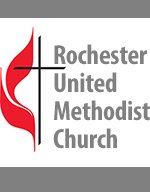Did You Know? –From “A Brief Introduction to the New Testament,” Bart D. Ehrman
• “Mark was written in Greek, around 65-70 C.E.”
• “The Gospel stresses that Jesus’ character and destiny were misunderstood by virtually everyone with whom he came in contact.”
Mark 11:12-19
Mark 11:12-19 New Revised Standard Version (NRSV)
Jesus Curses the Fig Tree
12 On the following day, when they came from Bethany, he was hungry. 13 Seeing in the distance a fig tree in leaf, he went to see whether perhaps he would find anything on it. When he came to it, he found nothing but leaves, for it was not the season for figs. 14 He said to it, “May no one ever eat fruit from you again.” And his disciples heard it.
Jesus Cleanses the Temple
15 Then they came to Jerusalem. And he entered the temple and began to drive out those who were selling and those who were buying in the temple, and he overturned the tables of the money changers and the seats of those who sold doves; 16 and he would not allow anyone to carry anything through the temple.
17 He was teaching and saying, “Is it not written, ‘My house shall be called a house of prayer for all the nations’?
But you have made it a den of robbers.”
18 And when the chief priests and the scribes heard it, they kept looking for a way to kill him; for they were afraid of him, because the whole crowd was spellbound by his teaching. 19 And when evening came, Jesus and his disciples[a] went out of the city.
Some Thoughts on Today’s Reading—Pastor Pam
Growing up in the church, the images of Jesus we had were mostly gentle and kind. In the churches that I have served as a pastor, I often encounter the painting of Jesus carrying the little lamb back to the flock. I also remember illustrations of him working as a carpenter looking strong and capable. The one childhood memory I have that really stands out is Jesus flipping over the tables in the Temple.
Mark’s Gospel states: “He was teaching and saying, ‘Is it not written, my house shall be called a house of prayer for all the nations. But you have made it a den of robbers.'” (Mark 11:17) It was one of those rare Sunday School moments where we encountered an angry Jesus.
I was taught that Jesus was full of righteous indignation as he saw people making money off a sacred place. Jesus was clearly making a point about his disappointment about what was going on. His upset, however, went well beyond those doing the business of the Temple. His eyes were on the religious leaders who had forgotten who they served. Mark tells us this was the last week of Jesus’ life. Why was it so important for him to cause a major scene in the Temple?
The authors of “The Last Week,” Marcus Borg and John Crossan, suggest Jesus is symbolically destroying the Temple with his violent action because the priests are complicit with the oppressor Rome. The Temple is a “haven” for religious leaders who do not act on behalf of others. They are defying God’s instructions. Jesus’ comments are mindful of the Prophet Jeremiah who speaks to the implications of faith and holy expectation. “…Has this house, which is called by my name, become a den of robbers in your sight? (Jeremiah 7: 5-7, 11) This is not the first time God encounters a place of worship without justice. What does this say about the risk Jesus took in the Temple and what he expects of those he calls today? How do worship and justice connect?
Grace and Peace,
Pastor Pam
